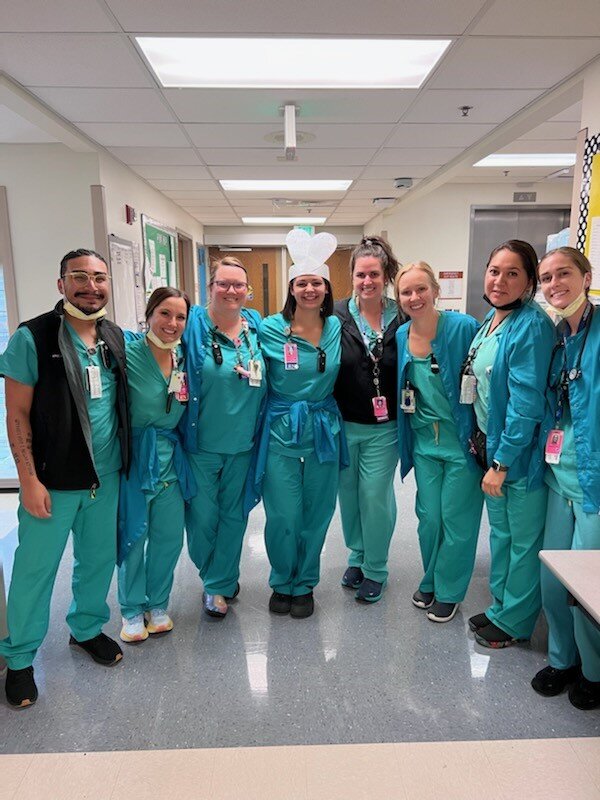Often the only man in the room, Colorado nurse-midwife student pushes back against stereotypes

AURORA, Colo. — When Air Force veteran Eric Alvarez made the decision to change careers and become a labor and delivery nurse, not everyone was very encouraging.
“There was a labor and delivery nurse who flat out told me that I would not be hired just because I’m a man!” he exclaimed.
Alvarez works at Denver Health and is also a student in the University of Colorado College of Nursing’s nurse-midwifery program and said, at this point, he’s used to being the only male nurse in the room.
“There are just not a lot of men in this profession, so the first question people ask me is 'Why you, as a man, would want to be in this field?'” said Alvarez. “My first response is that wanting to take care of people has nothing to do with your gender.”
According to the American Midwifery Certification Board (AMCB), of the more than 13,000 AMCB-certified nurse-midwives across the United States, 85% of them are white and only 39 (0.3%) are men.
Alvarez hopes to change that. He said that as the population of pregnant people becomes more diverse, so should those who provide their health care.

“I have had and seen [pregnant] patients who did not identify as women. They are non-binary, or they identify as men,” Alvarez added, saying that nurse-midwives are part of the community, not outsiders telling patients what to do. “Nurse midwives do more than just see you at the time of your visit. They know you outside the hospital and inside the home. They are concerned about your health and, do you have child care? Do you have access to healthy food and transportation? It’s knowing more than just what you are in that moment.”
One of the main reasons Alvarez chose this profession is its history.
“In the antebellum South, many of the enslaved women were the primary caretakers of the women in their communities. They were the ones delivering the babies, even those of their enslavers. But then the white male physician comes along and says, ‘That Black woman is uneducated, she is dirty and you should not get care from her.’ OBGYNs [obstetrician gynecologists] have been delivering babies for 100 to 200 years; midwives have been doing it for millennia,” he explained.
Alvarez also pointed out that he sees dads getting more involved in caregiving for their newborn babies after watching him help their partners.
“They’re like, ‘Wait, this guy is supporting my wife? Let me go in there and let me do something, or maybe I can change my baby’s diaper too!’” Alvarez said. “They don’t feel the need to be on the opposite side of the curtain while their wife is having a baby.”
Alvarez told Rocky Mountain PBS that sometimes, his patients are so over the moon to have someone who looks or speaks like them.
“I’ve had patients who were so excited because, ‘Oh my god, my nurse is Black! How amazing is that?’ Or when I speak Spanish to my Spanish-speaking patients they are just like, ‘Thank goodness.’”
Statistics from the Centers for Disease Control and Prevention show that Black women are three times more likely to die from a pregnancy-related cause than white women. Alvarez ultimately hopes to change that and care for people, which is at the core of his motivations.
“At the end of the day, I came into this profession knowing that I want to help women and help my sisters of color," he said. "I want to do some good and do right by people.”
Dana Knowles is a multimedia journalist at Rocky Mountain PBS. You can reach her at danaknowles@rmpbs.org.
Lindsey Ford is a multimedia journalist at Rocky Mountain PBS. You can reach her at lindseyford@rmpbs.org.
